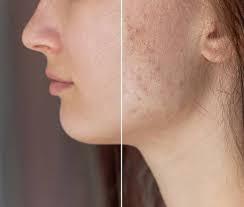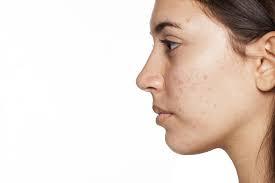Hormonal Acne | Specialized Treatment Options in Abu Dhabi
Сообщение 2024-05-04 10:46:05
0
1Кб

Hormonal acne, characterized by breakouts triggered by hormonal fluctuations, requires specialized treatment approaches to effectively manage symptoms and prevent recurrent flare-ups. Acne treatment in Abu Dhabi, dermatological clinics offer a range of specialized treatments tailored to address hormonal acne. Here are some specialized treatment options available:

1. Hormonal Therapy:
- How it Works: Hormonal therapy aims to balance hormone levels, particularly androgens like testosterone, which can contribute to excess sebum production and acne formation.
- Effectiveness: Hormonal therapy can effectively reduce hormonal acne in women by regulating hormone levels, improving skin texture, and preventing new breakouts.
- Options: Common hormonal therapies for acne include oral contraceptive pills (birth control), anti-androgen medications, and hormone replacement therapy (HRT) for certain medical conditions.
- Considerations: Hormonal therapy is typically prescribed under the guidance of a healthcare provider and may require regular monitoring to assess effectiveness and manage potential side effects.
2. Oral Antibiotics:
- How it Works: Oral antibiotics, such as tetracycline, doxycycline, or minocycline, can help reduce acne inflammation and bacterial colonization in the skin.
- Effectiveness: Oral antibiotics are effective in treating inflammatory acne lesions, including hormonal acne, by targeting the underlying bacterial infection and reducing inflammation.
- Combination Therapy: Oral antibiotics are often used in combination with topical treatments or hormonal therapy for comprehensive acne management.
- Duration: Oral antibiotics are typically prescribed for a limited duration to minimize the risk of antibiotic resistance and side effects.
3. Anti-Androgen Medications:
- How it Works: Anti-androgen medications, such as spironolactone, work by blocking the effects of androgens on the skin, reducing sebum production and acne flare-ups.
- Effectiveness: Anti-androgen medications are particularly effective for women with hormonal acne, helping to control excess oil production, minimize acne lesions, and improve overall skin appearance.
- Safety: Anti-androgen medications should be used with caution and under medical supervision, as they may cause side effects such as menstrual irregularities, breast tenderness, or potassium imbalances.
4. Retinoids:
- How it Works: Retinoids, such as tretinoin (Retin-A) or adapalene (Differin), are topical medications that promote skin cell turnover, unclog pores, and reduce inflammation, making them effective for treating hormonal acne.
- Effectiveness: Retinoids can help improve acne lesions, prevent new breakouts, and reduce the appearance of post-inflammatory hyperpigmentation or acne scars.
- Adherence: Retinoids should be used consistently as part of a daily skincare routine to achieve optimal results, with gradual improvement observed over several weeks to months.
5. Chemical Peels:
- How it Works: Chemical peels involve the application of a chemical solution to the skin, which exfoliates the outer layer and promotes the growth of new, healthier skin cells, making them effective for treating hormonal acne.
- Effectiveness: Chemical peels can help unclog pores, reduce acne lesions, fade post-inflammatory hyperpigmentation, and improve overall skin texture and tone.
- Options: Superficial or medium-depth chemical peels containing ingredients like salicylic acid, glycolic acid, or lactic acid are commonly used for acne treatment.
6. Lifestyle Modifications:
- How it Works: Lifestyle modifications, such as adopting a balanced diet, managing stress, getting regular exercise, and practicing good skincare habits, can complement medical treatments for hormonal acne.
- Effectiveness: Lifestyle modifications can help support overall hormonal balance, reduce inflammation, and promote skin health, contributing to long-term acne management and prevention of future flare-ups.
- Holistic Approach: Combining medical treatments with lifestyle modifications offers a holistic approach to hormonal acne management, addressing both internal and external factors contributing to acne formation.
In Abu Dhabi, dermatological clinics offer specialized treatment options for hormonal acne tailored to individual needs and preferences. By consulting with a qualified dermatologist, individuals can explore these treatment options and develop personalized plans to effectively manage hormonal acne and achieve clearer, healthier skin.
Поиск
Категории
- Art
- Causes
- Crafts
- Dance
- Drinks
- Film
- Fitness
- Food
- Игры
- Gardening
- Health
- Главная
- Literature
- Music
- Networking
- Другое
- Party
- Religion
- Shopping
- Sports
- Theater
- Wellness
- IT, Cloud, Software and Technology
Больше
karachiescort.co 0305-7586145
Skip to content
Search
KARACHI ESCORTS
ESCORTS IN KARACHI
ABOUT
CALL...
Giardiasis Treatment Market to witness market growth at a rate of 6.80%, size, trends
The market analysis furnishes insights into the drivers and restraints affecting...
Empty Capsules Market Surges to USD 4.94 billion by 2030, Propelled by 8.6% CAGR
The report named, "Global Empty Capsules Market Research Report 2024" has been added to...
Dubai Escorts +971521831700
I am glad to welcome you here at Dubai Call Girls Agency. It is great to have you here. Dubai is...
Crypto Currency ATM Market Demand Outlook, Regional Trends & Forecast (2024–2032)
What This Report Offers:
Detailed Crypto Currency ATM Market Breakdown — Clear...


